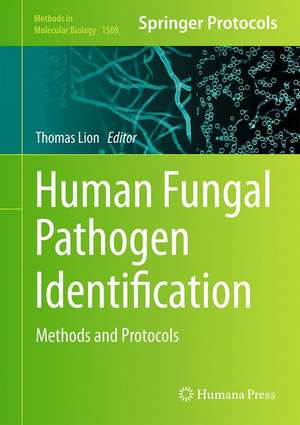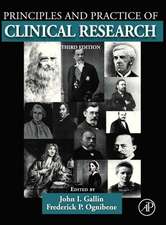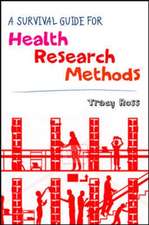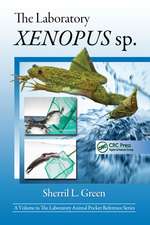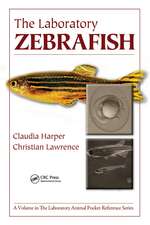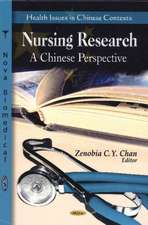Human Fungal Pathogen Identification: Methods and Protocols: Methods in Molecular Biology, cartea 1508
Editat de Thomas Lionen Limba Engleză Hardback – 12 noi 2016
Authoritative and practical, Human Fungal Pathogen Identification: Methods and Protocols serves as an ideal reference for researchers investigating the ever-growing worldwide healthcare problems involving fungal infections.
| Toate formatele și edițiile | Preț | Express |
|---|---|---|
| Paperback (1) | 914.29 lei 6-8 săpt. | |
| Springer – 27 iun 2018 | 914.29 lei 6-8 săpt. | |
| Hardback (1) | 740.06 lei 6-8 săpt. | |
| Springer – 12 noi 2016 | 740.06 lei 6-8 săpt. |
Din seria Methods in Molecular Biology
- 9%
 Preț: 791.63 lei
Preț: 791.63 lei - 23%
 Preț: 598.58 lei
Preț: 598.58 lei - 20%
 Preț: 882.98 lei
Preț: 882.98 lei -
 Preț: 252.05 lei
Preț: 252.05 lei - 5%
 Preț: 802.70 lei
Preț: 802.70 lei - 5%
 Preț: 729.61 lei
Preț: 729.61 lei - 5%
 Preț: 731.43 lei
Preț: 731.43 lei - 5%
 Preț: 741.30 lei
Preț: 741.30 lei - 5%
 Preț: 747.16 lei
Preț: 747.16 lei - 15%
 Preț: 663.45 lei
Preț: 663.45 lei - 18%
 Preț: 1025.34 lei
Preț: 1025.34 lei - 5%
 Preț: 734.57 lei
Preț: 734.57 lei - 18%
 Preț: 914.20 lei
Preț: 914.20 lei - 15%
 Preț: 664.61 lei
Preț: 664.61 lei - 15%
 Preț: 654.12 lei
Preț: 654.12 lei - 18%
 Preț: 1414.74 lei
Preț: 1414.74 lei - 5%
 Preț: 742.60 lei
Preț: 742.60 lei - 20%
 Preț: 821.65 lei
Preț: 821.65 lei - 18%
 Preț: 972.30 lei
Preț: 972.30 lei - 15%
 Preț: 660.49 lei
Preț: 660.49 lei - 5%
 Preț: 738.41 lei
Preț: 738.41 lei - 18%
 Preț: 984.92 lei
Preț: 984.92 lei - 5%
 Preț: 733.29 lei
Preț: 733.29 lei -
 Preț: 392.60 lei
Preț: 392.60 lei - 5%
 Preț: 746.26 lei
Preț: 746.26 lei - 18%
 Preț: 962.66 lei
Preț: 962.66 lei - 23%
 Preț: 860.22 lei
Preț: 860.22 lei - 15%
 Preț: 652.64 lei
Preț: 652.64 lei - 5%
 Preț: 1055.50 lei
Preț: 1055.50 lei - 23%
 Preț: 883.87 lei
Preț: 883.87 lei - 19%
 Preț: 491.89 lei
Preț: 491.89 lei - 5%
 Preț: 1038.86 lei
Preț: 1038.86 lei - 5%
 Preț: 524.16 lei
Preț: 524.16 lei - 18%
 Preț: 2122.34 lei
Preț: 2122.34 lei - 5%
 Preț: 1299.23 lei
Preț: 1299.23 lei - 5%
 Preț: 1339.12 lei
Preț: 1339.12 lei - 18%
 Preț: 1390.26 lei
Preț: 1390.26 lei - 18%
 Preț: 1395.63 lei
Preț: 1395.63 lei - 18%
 Preț: 1129.65 lei
Preț: 1129.65 lei - 18%
 Preț: 1408.26 lei
Preț: 1408.26 lei - 18%
 Preț: 1124.92 lei
Preț: 1124.92 lei - 18%
 Preț: 966.27 lei
Preț: 966.27 lei - 5%
 Preț: 1299.99 lei
Preț: 1299.99 lei - 5%
 Preț: 1108.51 lei
Preț: 1108.51 lei - 5%
 Preț: 983.76 lei
Preț: 983.76 lei - 5%
 Preț: 728.16 lei
Preț: 728.16 lei - 18%
 Preț: 1118.62 lei
Preț: 1118.62 lei - 18%
 Preț: 955.25 lei
Preț: 955.25 lei - 5%
 Preț: 1035.62 lei
Preț: 1035.62 lei - 18%
 Preț: 1400.35 lei
Preț: 1400.35 lei
Preț: 740.06 lei
Preț vechi: 779.02 lei
-5% Nou
Puncte Express: 1110
Preț estimativ în valută:
141.62€ • 151.43$ • 118.07£
141.62€ • 151.43$ • 118.07£
Carte tipărită la comandă
Livrare economică 17 aprilie-01 mai
Preluare comenzi: 021 569.72.76
Specificații
ISBN-13: 9781493965137
ISBN-10: 1493965131
Pagini: 354
Ilustrații: XI, 453 p. 66 illus., 49 illus. in color.
Dimensiuni: 178 x 254 x 25 mm
Greutate: 1.02 kg
Ediția:1st ed. 2017
Editura: Springer
Colecția Humana
Seria Methods in Molecular Biology
Locul publicării:New York, NY, United States
ISBN-10: 1493965131
Pagini: 354
Ilustrații: XI, 453 p. 66 illus., 49 illus. in color.
Dimensiuni: 178 x 254 x 25 mm
Greutate: 1.02 kg
Ediția:1st ed. 2017
Editura: Springer
Colecția Humana
Seria Methods in Molecular Biology
Locul publicării:New York, NY, United States
Cuprins
Current Challenges in the Diagnosis of Fungal Infections.- The Changing Epidemiology of Invasive Fungal Infections.- Current Algorithms in Fungal Diagnosis in the Immunocompromised Host.- Commercial Molecular Tests for Fungal Diagnosis from a Practical Point of View.- Systemic Antifungal Agents: Current Status and Projected Future Developments.- Fungal-Grade Reagents and Materials for Molecular Analysis.- Host-Derived Biomarkers for Risk Assessment of Invasive Fungal Diseases.- Assessment of Immune Responses to Fungal Infections: Identification and Characterization of Immune Cells in the Infected Tissue.- Histopathology.- Culture-Based Techniques.- Serological Approaches.- Isolation of Nucleic Acids for Fungal Diagnosis.- Prerequisites for Control of Contamination in Fungal Diagnosis.- Broad-Spectrum Molecular Detection of Fungal Nucleic Acids by PCR-Based Amplification Techniques.- Genus- and Species-Specific PCRDetection Methods.- Identification of Fungal Pathogens in Tissue Samples from Patients with Proven Invasive Infection by Fluorescence In Situ Hybridization.- Nuclear Magnetic Resonance Spectroscopy-Based Identification of Yeast.- T2 Magnetic Resonance for Fungal Diagnosis.- Fungal Species Identification by MALDI-ToF Mass Spectrometry.- Immunological Identification of Fungal Species.- The Molecular Blueprint of a Fungus by Next-Generation Sequencing (NGS).- Microarray Technologies in Fungal Diagnostics.- Molecular Detection of Resistance to Echinocandins.- Molecular Detection of Resistance to Azole Components.- Immune Cell-Supplemented Human Skin Model for Studying Fungal Infections.
Textul de pe ultima copertă
This detailed volume presents timely and authoritative content offering a comprehensive overview of the current state of the art in fungal diagnostics. Moreover, it addresses on-going developments expected to provide a basis for targeted treatment strategies resulting in improved outcome of invasive mycoses. The knowledge of host-related predisposing factors and stratified treatment options facilitating timely onset of adequate antifungal therapy are critical for successful clinical management and outcome of invasive fungal disease (IFD), requiring not only rapid diagnosis of a fungal infection and identification of the causative species, but also assessment of pathogen/host factors related to pathogenicity, susceptibility, and response to treatment. Written for the highly successful Methods in Molecular Biology series, chapters include introductions to their respective topics, lists of the necessary materials and reagents, step-by-step, readily reproducible protocols,and tips on troubleshooting and avoiding known pitfalls.
Authoritative and practical, Human Fungal Pathogen Identification: Methods and Protocols serves as an ideal reference for researchers investigating the ever-growing worldwide healthcare problems involving fungal infections.
Caracteristici
Includes cutting-edge methods and protocols to study human fungal pathogens Provides step-by-step detail essential for reproducible results Contains key notes and implementation advice from the experts
